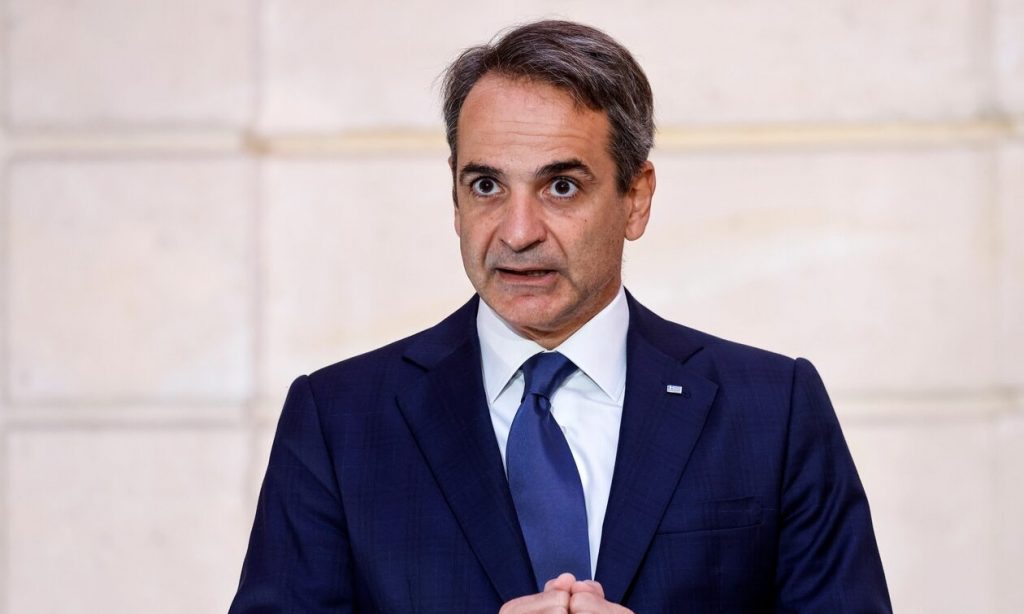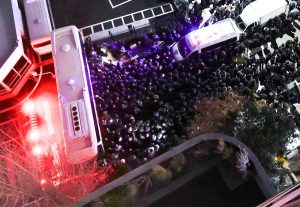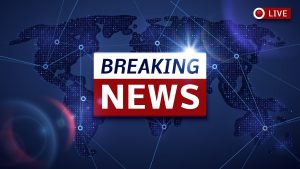BRUSSELS—NATO, fresh from a bruising fight over Sweden’s accession , turns 75 on Thursday amid a new spat over who should next lead the military alliance.
The dispute casts a shadow over what was meant as a celebratory gathering of the top diplomats from the North Atlantic Treaty Organization’s 32 members this week. It pits early members against ones that joined after the Cold War, widening a rift that emerged with Russia’s invasion of Ukraine.
To mark NATO’s anniversary, U.S. Ambassador to NATO Julianne Smith is hosting all the diplomats on Wednesday, including Secretary of State Antony Blinken , and other dignitaries at her official residence outside Brussels, Truman Hall, named for President Harry S. Truman , who oversaw the alliance’s creation in 1949.
President Biden in July will host a summit of all NATO leaders in Washington, where the founding treaty was signed. The pact aimed to defend members against hostility from Moscow—a task the alliance is assuming once again.
NATO leaders had hoped this week to resolve the question of who will succeed Secretary-General Jens Stoltenberg when his term ends on Sept. 30. Stoltenberg, a former Norwegian prime minister, has led the alliance since 2014 and has had his initial four-year term extended four times .
Arguments over who should next lead NATO highlight a characteristic of the group that has proved both a strength and a weakness: It has very few written rules and operates by consensus, usually meaning unanimous decisions. That has often provided flexibility , but occasionally allowed one member to block action.
When NATO was created as a loose military alliance among the U.S., Canada and 10 Western European allies still recovering from World War II, consensus usually meant agreeing with Washington’s wishes.
Over the past quarter-century, NATO has grown to include 15 countries that during the Cold War opposed it from across the Iron Curtain. The diversity of views that expansion brought has complicated many decisions. Political shifts in other members, especially Turkey, have decreased their willingness to toe the U.S. line.
Adding to complexity, NATO’s selection process has become much more public than in the past, when the alliance had fewer members, drew less attention and didn’t figure as largely into international politics as now. Greater scrutiny has heightened internal tensions, officials say.
Ambassador Smith said in February, before a meeting of defense ministers, that members aimed to select a new secretary-general “probably in the first quarter of this calendar year, to the extent that that’s possible.”
On Tuesday she added, “Certainly, we want to reach some resolution on this sooner rather than later.”
The issue is now gaining urgency because alliance leaders want the succession question resolved before the European Union starts choosing its next leadership team following European Parliament elections in early June. NATO’s chief has traditionally been a European, and a fear on both sides of the Atlantic is that if the post isn’t filled soon, it will become an unofficial chit in negotiations over EU top jobs.
An unwritten rule of European politics is that when a country’s national is selected for a prominent position, that country is eliminated from the running for other high-level slots. Of NATO’s 32 members, 23 are in the EU, so if the leadership competitions coincide, they are likely to influence each other.
Allies over recent years had also hoped to fill the top post—which has always been held by a man—with a woman of high political stature. Names publicly discussed included European Commission President Ursula von der Leyen , who is a former German defense minister, and Estonian Prime Minister Kaja Kallas .
Kallas also drew support among eastern members previously under Moscow’s sway, which have felt the greatest impact of Russia’s invasion of Ukraine. Politicians and analysts from Poland and the Baltic States have gained in stature within the alliance in recent years for having presciently warned that Russia posed a grave threat to Europe’s security and economic stability.
Central Europeans have expressed growing resentment in recent years that they have largely been overlooked for senior NATO positions, even though they spend proportionally more on defense than most West European members. All secretaries-general have come from Western Europe. Current Deputy Secretary-General Mircea Geoana is Romanian, the most senior official so far from the region. Officials from early members fill all eight positions in the next rank beneath that.
Last summer, when a woman with sufficient gravitas couldn’t be agreed on as secretary-general, members tacitly relaxed their criteria. In October, departing Dutch Prime Minister Mark Rutte —a widely respected longtime national leader—put himself in the running after previously denying interest. He was immediately considered the front-runner.
In a surprising twist early this year, Romanian President Klaus Iohannis indicated his interest in the post. Almost immediately, the U.S., U.K., Germany and France voiced support for Rutte.
Iohannis publicly declared his desire for the NATO job in March, saying his region needed more representation. The move’s timing irked many alliance diplomats.
Hungary around the same time publicly opposed Rutte, but didn’t express support for Iohannis. Hungary was the last country to ratify Sweden’s accession last month. Hungarian Prime Minister Viktor Orban has opposed NATO support for Ukraine and routinely spars with other EU members over a range of issues.
Only a handful of members haven’t voiced support for Rutte, say diplomats.
One unknown in the race is where Turkey stands on Rutte. Turkish President Recep Tayyip Erdogan delayed Sweden’s entry into NATO for more than a year because of dissatisfaction with Stockholm’s policies toward Turkey and Kurdish separatists against which Ankara is fighting.
The two leaders spoke by phone on Sunday, both countries said, though neither side’s statement clarified whether Erdogan would support Rutte’s bid. The call went well for Rutte, according to a person familiar with the discussion. Turkish support for Rutte is likely and could bring with it backing from other fence-sitters, said another person familiar with deliberations.
NATO officials now hope the leadership question can be resolved at or before an informal meeting of alliance foreign ministers in late May, in Prague. That gathering is seen as the last chance to settle the issue before the EU election. If that isn’t possible, members want to settle the issue before the July summit, to avoid it consuming their attention. The ultimate deadline for a decision is the end of September.
Write to Daniel Michaels at Dan.Michaels@wsj.com


